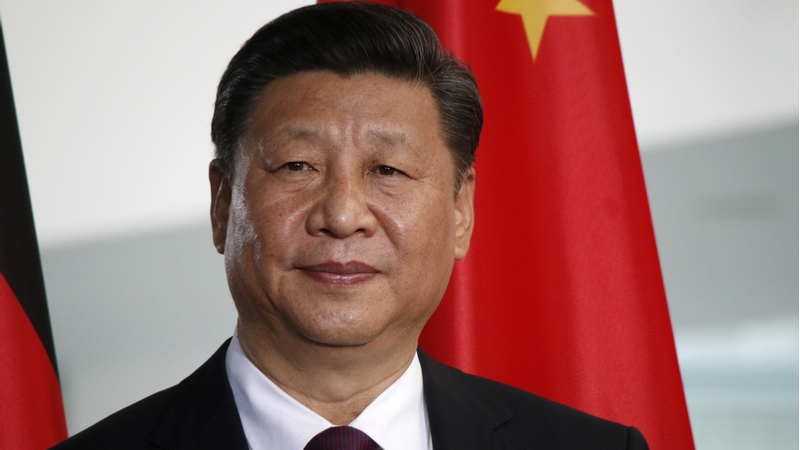Xi Jinping and the end of China's term limits
March 01 2018

By Simone van Nieuwenhuizen
Note: This article appeared in the University of Nottingham's China Policy Institute: Analysis on March 1 2018.
The 1982 amendments to the constitution of the People’s Republic of China (PRC) indicated that the Chinese Communist Party (CCP) had set upon a path to evolve from a party of revolution to one of governance. This was the difficult mission led by Deng Xiaoping, following the death and destruction wrought by the decade-long Cultural Revolution and the excesses of Mao’s cult of personality.
China needed stability in order to recover from the chaos and tragedy enacted under Mao’s rule. The Party agreed to build strong institutions and introduce a so-called ‘collective leadership’ system to ensure this stability and prevent the the concentration of power in any one individual.
The 1982 constitutional amendments reinstated the then-defunct position of President (or ‘State Chairman’) and mandated a limit of two consecutive, five-year terms for the President, Vice President and National People’s Congress (NPC) members. This encouraged incumbent leaders to groom protégés to take up the mantle after their time was up.
China’s internal politics is notoriously opaque. Nevertheless, for more than three decades Sinologists and scholars relied on these conventions for clues into the CCP’s machinations. Such assumptions have now completely eroded with the CCP’s proposal, announced on 25 February, to remove the term limit clause from the constitution.
A couple of hours before state news agency Xinhua broke the news, it ran this brief article:
Xi Jinping, general secretary of the Communist Party of China (CPC) Central Committee, stressed the important role of the Constitution.
‘No organization or individual has the power to overstep the Constitution or the law,’ Xi said on Saturday when presiding over a group study session of the Political Bureau of the CPC Central Committee.
But Party leaders would not be ‘overstepping’ if they act within the re-written rules.
When the elimination of the term limit clause is considered in conjunction with other proposed constitutional amendments, it is clear the Party is making institutional changes to cement its control over all aspects of state decision-making.
The proposed package includes the addition of the statement, ‘the leadership of the Communist Party of China is the defining feature of socialism with Chinese characteristics,’ and lists supervisory commissions (national and local) as a new type of state organ. Currently, the Party’s Central Discipline Inspection Commission (CDIC) carries out anti-corruption investigations and disciplinary measures for Party members; these new bodies under the state constitution would subject non-Party members to similar investigations and disciplinary measures, with the Party’s cooperation, ‘to ensure the [CCP]’s centralized and unified leadership over anti-corruption work’. Furthermore, with the introduction of an ‘oath of allegiance’ to the constitution for all state functionaries, state representatives will effectively be pledging allegiance to the Party itself.
Party and government will now be synonymous.
If this weren’t explicit enough, the communique from the CCP Central Committee’s Third Plenum, held in the lead-up to the March 5 National People’s Congress, states the Party’s primary task is ‘to strengthen the CPC’s leadership in every sector, ensure its all-encompassing coverage and make it more forceful’.
These changes sit uncomfortably in China’s constitutional history. Reflecting on justifications of the 1982 amendments, the abolishment of term limits seem particularly jarring.
The CCP’s online encyclopaedia states that the term limit system ‘conforms to the principles of limited and restricted power and has normative, procedural and democratic characteristics’.
In December 1982, following the NPC’s ratification of term limits for key state leadership positions, the Party newspaper People’s Dailyexplained the decision as ‘constraining the excessive centralisation of power of the past, which sometimes even saw military and political power concentrated in a single person’. The article went on to call this kind of power a ‘serious weakness’. The amendments, it said, amounted to ‘a gratifying achievement of democratic reform, and will have a lasting influence’.
In July 1982, the newspaper posed the question, ‘Why could such a disaster as the Cultural Revolution occur on socialist soil, while it was impossible for the majority of Party members and the masses to apply regular methods to control its spread?’ It went on to argue the system of lifetime rule and the cult of personality were to blame.
Another article from June 1982 was even blunter: ‘[T]he system of lifetime rule for the main positions of state leadership is a relic of feudalist society, and makes it easy to form a cult of personality. It does not benefit the promotion of democracy, and will lead to the emergence of undesirable phenomena such as conservatism, stagnation and cronyism.’
These reports may not be freely available for much longer.
The CCP will have to confront the fundamental contradictions between its past and future as a governing party. It portrays itself as a party of progress and innovation. How, then, does reverting to old and potentially dangerous political institutions accord with the ‘new era’ heralded by President Xi?
A front-page People’s Daily report on February 28 2018 proclaimed, ‘History proves that whenever the constitution is amended and implemented well…the Party and country can constantly progress on the path of rule of law…The basis of the constitution lies in support from the people’s heart, and relies upon their heartfelt faith.’
While censors moved quickly to ruthlessly expunge traces of online opposition, it is impossible to erase Chinese citizens’ feelings towards the removal of term limits. Susan Shirk has written that ‘under Xi Jinping China is making a U-turn back to personalistic rule’. There is a slippery slope between personalistic rule and a cult of personality, and it remains to be seen how – and if – the Party will be able to prevent this descent. In the absence of mandated term limits, it will face pressure to introduce clear parameters and processes for leadership transition. Otherwise, the Party will continue to face resistance from the people, whom it purports to serve.
All translations of Chinese-language sources are the author’s own. References to 1982 People’s Daily reports were sourced from the newspaper’s archives.
Simone van Nieuwenhuizen is Project and Research Officer at the Australia-China Relations Institute at the University of Technology Sydney.

